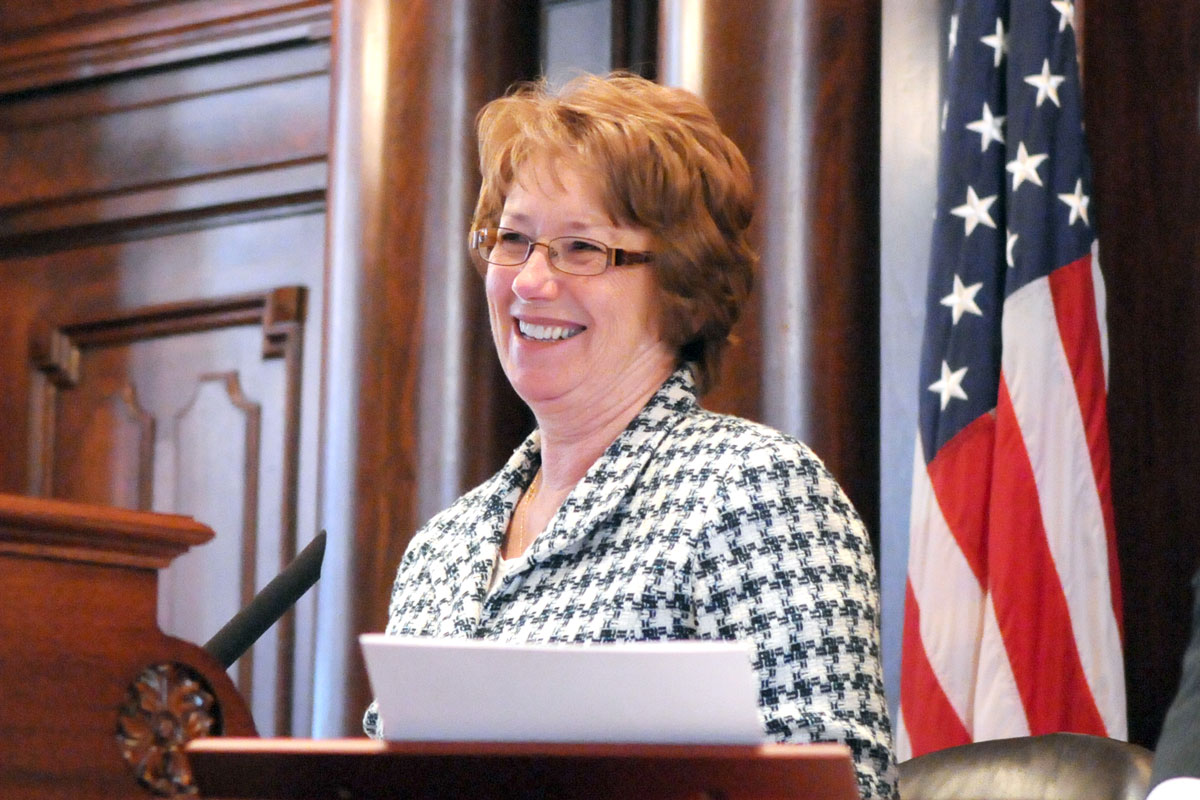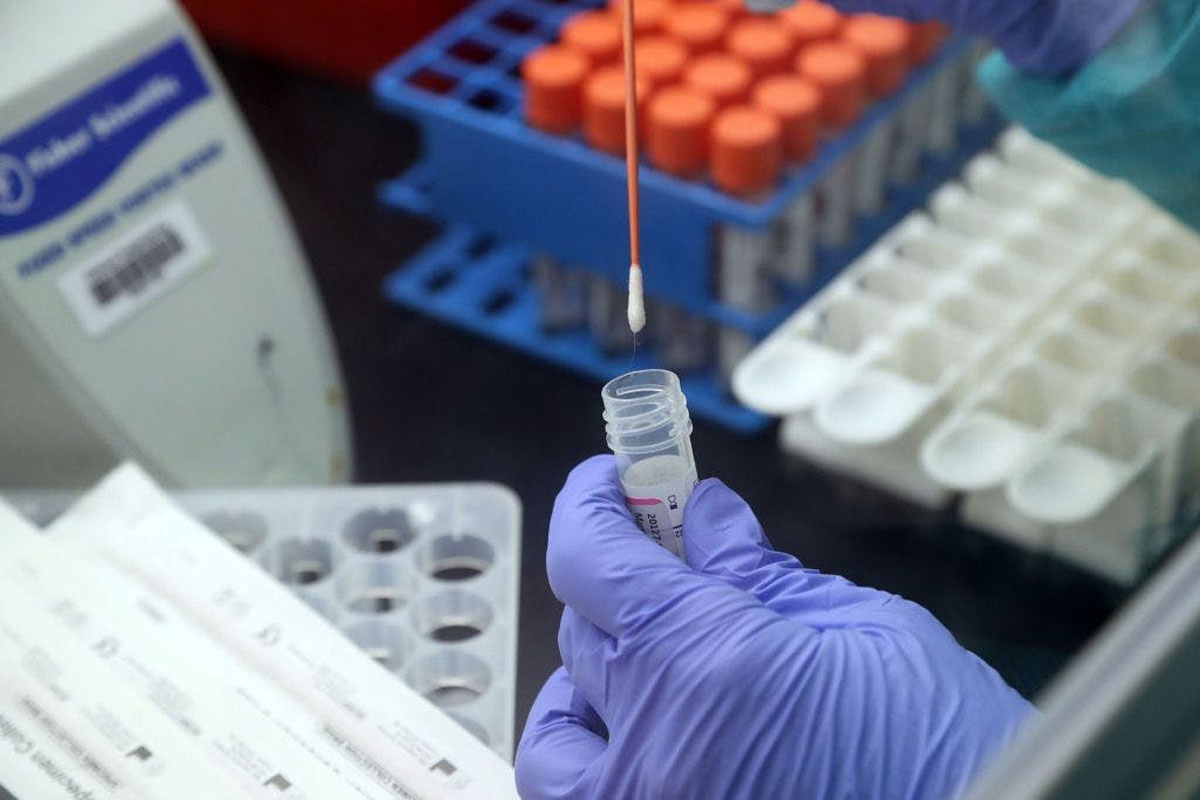- Details
- Category: Senator Elgie R. Sims Jr. News
 CHICAGO – In a continuing push to form a legislative agenda ahead of the upcoming fall veto session, the Illinois Legislative Black Caucus convened lawmakers from both chambers of the General Assembly to discuss criminal justice reform during a joint Senate hearing on Thursday.
CHICAGO – In a continuing push to form a legislative agenda ahead of the upcoming fall veto session, the Illinois Legislative Black Caucus convened lawmakers from both chambers of the General Assembly to discuss criminal justice reform during a joint Senate hearing on Thursday.
“You cannot quantify the loss of trust between communities and law enforcement,” State Senator Elgie R. Sims Jr. (D-Chicago). “The inability to have a relationship between communities that is transparent, strong and built on trust is not a current reality, but it should be. These discussions are crucial to discover and implement meaningful solutions to rebuild trust between law enforcement and the people that they serve.”
- Details
- Category: Senator Kimberly A. Lightford News
 CHICAGO – Senate Majority Leader Kimberly A. Lightford (D-Maywood) joined the Senate Education and Higher Education Committees for a hearing focused on efforts to prepare Illinois youth to enter the workforce, including career and technical education (CTE) program, the Illinois Pathways program and the Illinois Postsecondary Workforce Readiness Act.
CHICAGO – Senate Majority Leader Kimberly A. Lightford (D-Maywood) joined the Senate Education and Higher Education Committees for a hearing focused on efforts to prepare Illinois youth to enter the workforce, including career and technical education (CTE) program, the Illinois Pathways program and the Illinois Postsecondary Workforce Readiness Act.
“With few or no work experience programs available in their communities, students can’t build the job readiness skills they’ll need to excel in the workforce after graduation,” Lightford said. “CTE programs are an essential part of preparing students for high-demand, skilled careers.”
Read more: Lightford highlights importance of job experience for Illinois youth
- Details
- Category: Senator Patricia Van Pelt News
 CHICAGO – To discuss the importance of cultural competency and diversity within the health care workforce, Senate Public Health Chair Patricia Van Pelt and Health and Human Services Chair Julie Morrison will lead a joint Senate committee hearing Friday morning.
CHICAGO – To discuss the importance of cultural competency and diversity within the health care workforce, Senate Public Health Chair Patricia Van Pelt and Health and Human Services Chair Julie Morrison will lead a joint Senate committee hearing Friday morning.
“Black people die because of implicit bias. There are doctors who don’t listen to their Black patients, and don’t believe them when they say they’re in pain,” Van Pelt said. “Views that stem from the era of slavery about Black people being subhuman are still prevalent today and that needs to be addressed. We need more diversity in the industry, and a better understanding of disparities Black and Brown patients face.”
“Children, families and individuals who enter the human services network are already on edge and uncomfortable – and the lack of diverse employees that can relate to them doesn’t help,” Morrison said. “We must do more to hire and retain a workforce that resembles the individuals we are trying to help. Through further understanding the needs of the communities and having more multilingual staff, we will be able to make a difference in the lives of thousands of people in need.”
To watch the virtual committee, visit https://ilga.gov/senateaudvid.asp and click "Watch Live Virtual Committee Video." The link will be available at 9 a.m.
Additional witnesses can submit written testimony online at www.ilga.gov.
WHO: Senate Public Health Committee Chair Patricia Van Pelt (D-Chicago) and Health and Human Services Chair Julie Morrison (D-Lake Forest), and members of the committees
WHAT: A joint committee hearing on diversity and cultural competency in health care
WHERE: The virtual hearing can be viewed here: https://ilga.gov/senateaudvid.asp#. Blue Room Stream, a subscription-based service, will also stream the hearing.
WHEN: Friday, Nov. 6 at 9 a.m.
- Details
- Category: Senator Laura Fine News
 GLENVIEW – The open enrollment period for the Affordable Care Act Health Insurance Marketplace runs from Nov. 1 to Dec. 15, and State Senator Laura Fine (D-Glenview) is urging uninsured and underinsured Illinoisans to visit the marketplace now to explore their coverage options.
GLENVIEW – The open enrollment period for the Affordable Care Act Health Insurance Marketplace runs from Nov. 1 to Dec. 15, and State Senator Laura Fine (D-Glenview) is urging uninsured and underinsured Illinoisans to visit the marketplace now to explore their coverage options.
“Everyone deserves quality, affordable health insurance they can trust, especially during a global pandemic,” Senator Fine said. “Illinoisans have until Dec. 15 to shop the ACA Marketplace for a plan that fits their budget and their coverage needs.”
- Details
- Category: Senator Julie A. Morrison News
 DEERFIELD –State Senator Julie Morrison (D-Lake Forest) is pleased to learn 19 businesses in the district she represents have received financial assistance from the Business Interruption Grant program to help offset financial losses stemming from the ongoing COVID-19 pandemic, and she is encouraging more to apply.
DEERFIELD –State Senator Julie Morrison (D-Lake Forest) is pleased to learn 19 businesses in the district she represents have received financial assistance from the Business Interruption Grant program to help offset financial losses stemming from the ongoing COVID-19 pandemic, and she is encouraging more to apply.
“Small business owners have been some of the people hardest hit by the financial impacts of the COVID-19 pandemic,” Morrison said. “These funds will help them keep their doors open and their employees paid while keeping the community safe.”
Read more: Morrison: 19 businesses in 29th District received help, but more should apply
- Details
- Category: Senator Don Harmon News
 SPRINGFIELD – Senate President Don Harmon issued the following statement after former Senator Maggie Crotty passed away:
SPRINGFIELD – Senate President Don Harmon issued the following statement after former Senator Maggie Crotty passed away:
"I was saddened to learn of the passing of Maggie Crotty, someone with whom I dearly loved working.
"Maggie and I came into the Senate at the same time. She had a rare combination of tenacity and toughness mixed with a kind and gentle demeanor. She would greet everyone with a smile and a hug, but she could size up a huckster a mile away. She never failed to stand up for the causes that were important to her.
Read more: Senate Dems react to passing of former Senator Maggie Crotty
- Details
- Category: Senator Antonio Muñoz News

CHICAGO – Assistant Majority Leader Tony Munoz (D-Chicago) is glad to learn more than 30 businesses in the district he represents have received financial assistance from the Business Interruption Grant program to help offset financial losses stemming from the ongoing COVID-19 pandemic, and he is encouraging more to apply.
“Our local small businesses are embedded in the culture of our community,” Munoz said. “They play an important role in serving our residents, and they need our support as they comply with the guidelines that keep us safe.”
Read more: Munoz announces 31 businesses in 1ST District received help, encourages more to apply
- Details
- Category: Senator Adriane Johnson News

WAUKEGAN – State Senator Adrian Johnson (D-Buffalo Grove) is reminding Lake County residents that Waukegan’s drive-thru COVID-19 testing site is now also accepting walk-ups and is encouraging everyone to get tested.
“I’m glad to see that this critical testing service is now more accessible than ever before,” Johnson said. “It’s still essential that we continue to test for this virus to understand its presence in our community and the rest of the state. If you’re experiencing symptoms or may have come in contact with COVID-19, I encourage you to stop by and get tested.”
The site is still located at 102 W. Water St., and testing is available from 8 a.m. until 4 p.m. daily while supplies last.
A person receiving a walk-up test, should enter off Genesee Street and follow the line marked by orange cones. If arriving by car, anyone who wants to be tested must be seated at a functioning window. Once in line at the testing site, everyone must stay in the car.
Read more: Johnson urges residents to take advantage of COVID-19 testing
More Articles …
- State lawmakers continue police reform discussions in hearing prompted by Black Caucus
- Local small businesses receive more than $500,000 in assistance from BIG program Cunningham urges more to apply
- Bennett encourages residents to take advantage of new mobile testing van in Vermilion County
- Joyce: Shop locally to help businesses, economy recover from pandemic
Page 605 of 769













 © 2026 Illinois Senate Democratic Caucus
© 2026 Illinois Senate Democratic Caucus